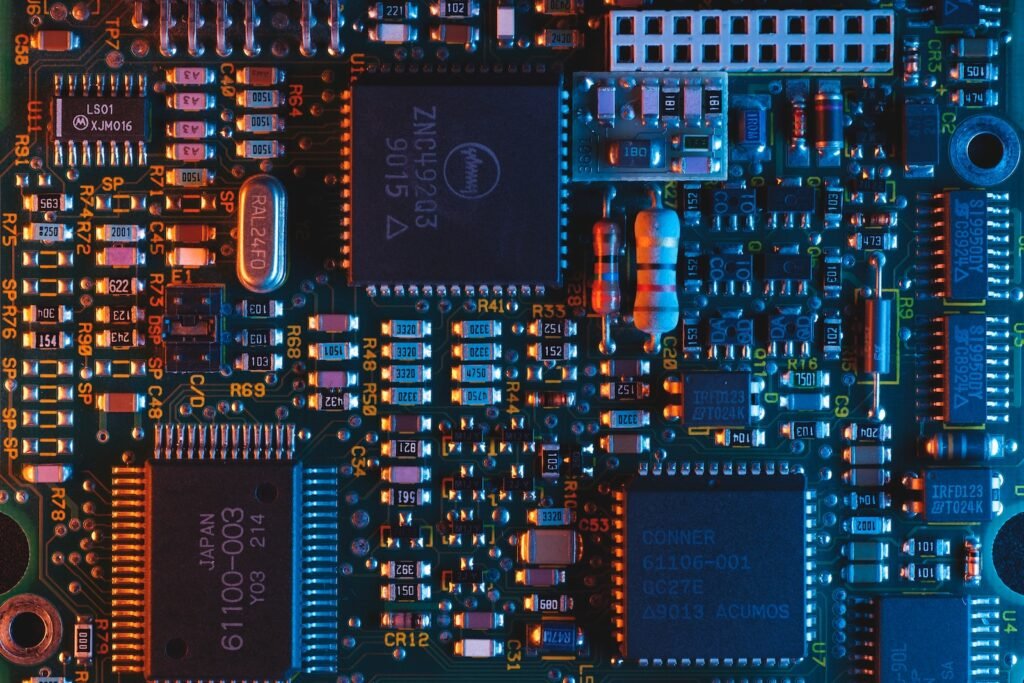The Importance of Efficient Gold Recovery
With the rapid advancement of technology, electronic components have become an integral part of our lives. However, as these devices become outdated or malfunction, they often end up in landfills, posing significant environmental risks. What many people fail to realize is that these electronic components contain a hidden treasure – gold. Efficiently recovering gold from e-waste not only helps to unlock valuable resources but also contributes to resource conservation and reduces the need for environmentally damaging mining operations. In this article, we will explore the various methods and technologies for gold extraction, the economic potential and environmental benefits of efficient gold recovery, as well as the challenges and solutions in electronic component recycling.

Understanding the Composition of Electronic Components
Electronic components, such as printed circuit boards (PCBs) and connectors, are rich sources of gold. These components are primarily composed of metals like copper, silver, tin, and gold, along with various other materials. Understanding the composition of electronic components is crucial for efficient gold recovery. Different components have different concentrations of gold, and this knowledge helps in planning the extraction processes.
Exploring Various Methods for Gold Extraction
There are several methods available for the extraction of gold from electronic components. One common method is cyanide leaching, which involves the use of a highly toxic chemical to dissolve gold. However, this method is not only hazardous to human health and the environment but also inefficient. Other methods, such as gravity separation, electrochemical recovery, and bacterial leaching, are being explored as more sustainable and efficient alternatives.
Harnessing Advanced Technologies for Recovery
Advancements in technology have revolutionized the gold recovery process. Modern techniques, such as hydrometallurgical processes and bioleaching, utilize environmentally friendly solvents and microorganisms to recover gold from electronic components. These advanced technologies not only maximize the recovery rate but also minimize the environmental impact, making them the future of gold extraction from e-waste.
Maximizing Efficiency in Gold Recovery Processes
Efficiency is the key to successful gold recovery from electronic components. Efficient processes involve proper sorting and segregation of components based on their gold content, as well as the use of optimized extraction methods. By maximizing efficiency, the recovery rate can be significantly increased, ensuring the maximum utilization of gold resources.
Challenges and Solutions in Electronic Component Recycling
Electronic component recycling poses various challenges. The complex nature of electronic waste, including the presence of hazardous materials and intricate designs, makes the recovery process difficult. Improper dismantling and lack of standardized recycling practices further exacerbate the problem. However, these challenges can be overcome by implementing strict regulations, promoting responsible recycling practices, and investing in advanced recycling technologies.
The Economic Potential of Recovering Gold from E-Waste
Recovering gold from electronic waste presents a significant economic opportunity. Gold is a valuable and finite resource, and as the demand for electronic devices continues to rise, the need for gold extraction from e-waste becomes even more crucial. Moreover, the rising gold prices make it economically viable to invest in efficient gold recovery processes, creating a sustainable business model.
Environmental Benefits of Efficient Gold Recovery
Efficient gold recovery from electronic components offers substantial environmental benefits. By recovering gold from e-waste, we reduce the need for environmentally damaging mining activities, which often result in deforestation, water pollution, and habitat destruction. Additionally, the proper disposal of electronic waste prevents the release of toxic substances into the environment, ensuring a cleaner and healthier planet.
Innovations in Gold Recovery Techniques
Innovations in gold recovery techniques are continuously being developed to improve efficiency and sustainability. For instance, researchers are exploring nanotechnology and biotechnology-based approaches to enhance the recovery rates of gold. By harnessing these innovative techniques, we can further optimize the recovery process and minimize the environmental footprint.
Impacts of Gold Recovery on Resource Conservation
Gold recovery from electronic components plays a crucial role in resource conservation. By efficiently extracting gold from e-waste, we reduce the need for virgin gold mining, which depletes valuable resources and contributes to environmental degradation. Additionally, recycling gold reduces the demand for new production, leading to energy savings and a more sustainable use of resources.
Market Trends and Opportunities in Electronic Gold Recycling
The market for electronic gold recycling is experiencing significant growth. As awareness about the environmental impact of e-waste increases, governments and industries are investing in recycling infrastructure and promoting responsible recycling practices. This has created a growing market for gold recovery from electronic components, providing opportunities for businesses and entrepreneurs to tap into this lucrative sector.
Unlocking the Full Potential of Electronic Gold Recovery
Efficient recovery of gold from electronic components is not only an environmentally responsible choice but also a financially rewarding endeavor. By understanding the composition of electronic components, exploring various extraction methods, harnessing advanced technologies, and maximizing efficiency, we can unlock the full potential of electronic gold recovery. As we move towards a more sustainable future, it is crucial to prioritize the recovery and recycling of valuable resources like gold to minimize environmental impact and ensure the long-term availability of this precious metal.
